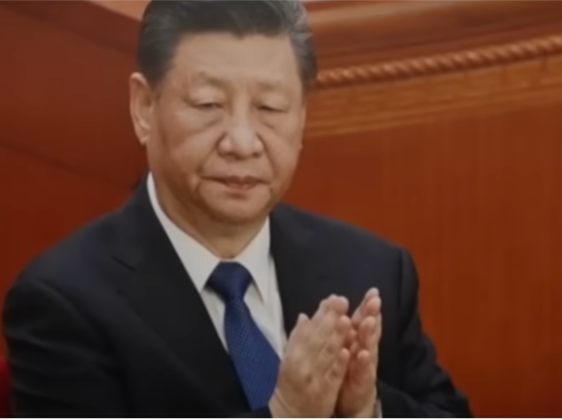News
China Retaliates With Export Ban on Rare Minerals Needed to Make Semiconductors

Source: YouTube
The tech war between the United States and China has entered a dangerous new phase. This week, China announced an export ban on key minerals such as gallium, germanium, and antimony to the US. These materials are critical for high-tech manufacturing, including semiconductors and military technologies. The export ban is seen as retaliation for the Biden administration’s decision to expand restrictions on China’s access to advanced US-made technology, particularly in the semiconductor sector.
China’s Ministry of Commerce justified the new export ban by citing “national security” concerns. This latest measure underscores Beijing’s willingness to weaponize its dominance in rare earth minerals, marking an escalation in economic hostilities between the world’s largest economies.
The US-China Tech War: A Timeline of Retaliation
This week’s export ban from China is not an isolated act but part of a broader pattern of retaliatory measures. The US has steadily restricted Chinese companies from acquiring advanced semiconductor technology over the past three years. Most recently, the Biden administration expanded its curbs, adding 140 Chinese firms to a restricted trade list and blocking access to cutting-edge chips and manufacturing tools.
China’s response mirrors past actions, such as its 2010 rare earth metals export ban on Japan during a territorial dispute. However, the stakes are higher now. China produces the majority of the world’s supply of gallium, germanium, and antimony, leaving the US with limited alternatives. While American firms have diversified their supply chains, the immediate impact on semiconductor production and military manufacturing could be significant.
Implications of China’s Export Ban
China's ban on these critical minerals could disrupt industries reliant on advanced manufacturing technologies. Gallium and germanium are essential for semiconductors, fiber optics, and infrared devices, while antimony is used in batteries and explosives. The ban also includes restrictions on graphite, a material vital for producing batteries and electric vehicles.
While the US has reduced its dependence on direct imports from China, relying on intermediaries like Japan and Germany, the long-term effects could still be profound. Supply chain disruptions may increase costs for American companies and further strain bilateral relations. The move has also drawn criticism from US officials, who accuse Beijing of engaging in “economic coercion.” The White House has vowed to mitigate the impact through measures such as promoting domestic production and forming alliances with other mineral-rich countries.
Trump’s Tariff Threats Signal More Trouble
The timing of this escalation is critical, as President-elect Donald Trump prepares to take office in January. Trump has vowed to implement aggressive trade policies, including raising tariffs on imports from China and other trading partners. These promises, coupled with China’s latest retaliatory move, suggest that the US-China trade relationship is poised to worsen.
During his campaign, Trump outlined plans to impose tariffs exceeding 60% on Chinese goods and to revoke China’s permanent normal trade relations status. These measures would likely prompt further retaliation from Beijing, deepening the economic divide between the two nations.
Experts fear that escalating trade restrictions could trigger a global supply chain crisis. With China controlling much of the world’s rare earth minerals and the US dominating semiconductor innovation, a prolonged standoff could destabilize key industries worldwide.
Is This An Escalation of the US-China Tech War?
As Trump’s inauguration approaches, both nations are doubling down on protectionist policies. China’s export ban and the US semiconductor restrictions highlight the risks of economic decoupling. For now, the focus is on mitigating the immediate fallout, with the US likely to accelerate efforts to secure alternative suppliers and boost domestic mineral production.
However, long-term solutions will require diplomatic efforts to ease tensions and stabilize trade relations. Without meaningful dialogue, the tech war could spiral into broader economic conflict, affecting industries far beyond semiconductors.
Will the US-China tech war escalate further under Trump?



